For many people, the journey to financial stability begins when they meet with a financial advisor. No matter what your assets look like, how many people are in your household or what you hope to accomplish with your finances, finding the right advisor is a crucial first step in achieving those goals.
Key Takeaways
- Asking the right questions during a meeting with a financial advisor can reveal their ability to perform their job and achieve your specific financial goals.
- Not all advisors are right for all clients, so it’s important to find someone who is qualified and experienced in situations similar to your own.
- Whatever you hope to achieve through investing, you should focus on your long-term goals and let those guide your decision-making.
Determine Financial Goals
Before you can choose the right financial advisor, you need to understand what you hope to achieve. If you’re planning for retirement, for instance, you need to understand what that looks like for you—how much money do you need each month? How often will you be making large expenses? Will you continue to support other members of a household and, if so, to what extent?
All of these questions should guide your goal-setting process, and you should have a relatively clear picture of what you want before you start seeking assistance from a financial professional.
Questions for a Financial Advisor
Once you understand your financial goals, it’s time to start hunting for the right advisor. This process can be made much simpler by preparing some questions ahead of time, which will show you how qualified the advisor is and how experienced they are with individuals in similar circumstances to your own.
Are You a Fiduciary?
A fiduciary is a financial professional who is legally required to act in the best economic interests of their clients. Certain types of financial advisors, like Certified Financial Planners, must also be fiduciaries, but not all financial professionals are. Knowing your advisor is legally bound to help you make the best financial decisions is a relief for many investors.
How are You Paid?
Different advisors use different compensation plans. Typically, financial advisors receive either a commission, a set fee, or a combination of the two.
Advisors who operate on a commission basis will receive an agreed-upon percentage of the proceeds from the sale of financial products they manage for their clients. At the same time, fee-only compensation is typically either a set hourly rate or a percentage of the total value of assets managed.
For larger financial planning firms, advisors might also be paid a salary based on the company’s total funds generated.
What is Your Investment Philosophy?
No two people see the investing world exactly the same, and it’s important to find an advisor whose perspective on investing aligns with your long-term goals.
An advisor’s investment philosophy considers factors like their tolerance for risk, preferred investing strategies, beliefs about the market, and many others. These ideas, coupled with the advisor’s professional experience, will dictate how your assets are used to accomplish your financial goals.
What Services Do You Provide?
Many financial advisors offer a wide range of services, but often they will specialize in certain aspects of investing and financial planning. Asking about available services and specialties when seeking an advisor will ensure you find the right person for your needs.
If, for instance, you plan to send several kids to college in the future, it’s good to know your prospective advisor has experience navigating the costs and challenges of doing so economically. If you’re planning to retire soon, you want to find an advisor who knows every little tip and trick to maximize your retirement savings. Whatever your goals might be, there’s a specialist out there to help you achieve them.
How Will We Work Together?
Some people want to be involved in every little detail of their financial planning, while others prefer not to see how the sausage is made. Finding the right advisor means finding a professional who communicates in the style and frequency that suits your needs, whether that’s consistent and specific updates or more spread-out, big-picture check-ins.
No matter what you want your working relationship with your advisor to look like, it’s critical to find someone who has clear, effective communication skills and who knows how to break down the necessary information for you to understand in a simple, efficient manner.
How Do You Track Investment Performance?
Whatever your advisor’s investment philosophy and strategy, you’ll want to receive periodic updates about your investments. Understanding how an advisor interprets the effectiveness of their investment decisions up front will allow you to see how things are going over time and can provide insight into their effectiveness as a planner.
What Professional Experience Do You Have?
No matter how an advisor is trained or what their investing strategies look like, there’s little substitute for working experience. A seasoned veteran of the financial industry will have a better idea of how to navigate complex financial situations and, perhaps more importantly, will know what to do when things go unexpectedly wrong. In the event of an unavoidable financial issue, it’s always good to have someone on your side who’s been there before.
What Types of Clients Do You Typically Work With?
Managing finances and investments requires context. What works for one person or family might not be right for another, and it’s generally a good idea to find an advisor who has worked with clients in similar situations.
An advisor who works exclusively with ultra-high-net-worth individuals, for instance, might not be as experienced in navigating lower-stakes investing strategies or vice versa. Financial professionals who work primarily with single-income, child-free homes might not know as much about financial planning for a large family. Finding someone who’s experienced working with people like you can be a huge help when navigating tricky financial scenarios.
What to expect at a financial planning meeting
A financial planning meeting is your opportunity to get to know your financial advisor and for them to learn more about you and your goals. A typical meeting will include an overview of your long-term plans and the current state of your finances to help your advisor better understand what’s possible and what you hope to accomplish.
You will also have the opportunity to ask these important questions during the meeting. This will allow you to learn more about the advisor’s experience and mindset and determine if they are a good fit for your financial needs before committing to a working relationship with them or their firm.
Bottom Line
Starting to work with a new financial advisor is an important step toward accomplishing your goals, and finding the right person to work with is crucial to succeeding in those goals. By asking questions and arriving well-prepared to your initial meeting, you can greatly increase your chances of finding someone who will serve as a good partner for your financial future.
Horizons Wealth Management offers various services, such as wealth management, managed portfolios, and financial planning. Schedule a call today to start planning your financial future.
Financial Advisor FAQs
Is it worth it to pay 1 percent to a financial advisor?
This depends on your individual situation, but generally, a 1 percent fee is fairly typical for these types of services. For less-complex financial advising, this could be higher than necessary, but for extremely complicated tax situations, it could be relatively affordable. If possible, try to compare rates for your situation across several prospective advisors to get a sense of what’s normal for you.
What rate of return should I expect from my financial advisor?
This is also extremely dependent on your unique situation, and will likely be influenced by you and your advisor’s tolerance for risk. Safer investments will yield lower returns with a higher rate of certainty, while riskier moves could produce a higher rate of return with less certainty.
How do you know a financial advisor is good at their job?
The simplest way to know if an advisor is skilled at their job is to check for customer testimonials and ask clear, straightforward questions during your initial meeting. An advisor with a great deal of experience and positive reviews is likely to be in touch with what their clients want and how to accomplish those goals.












